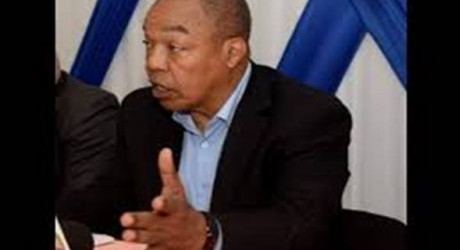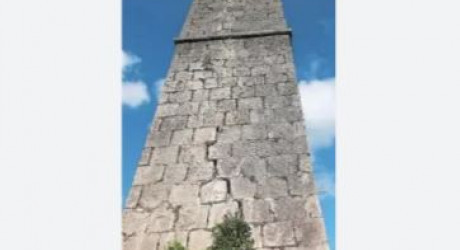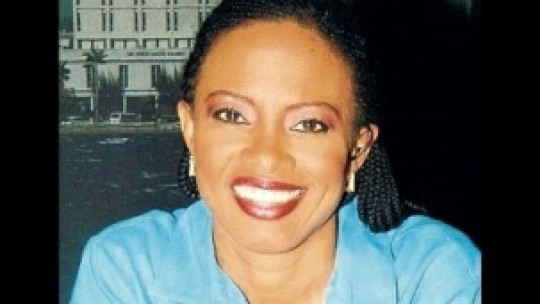As a New Police Commissioner Takes Charge…..
10:52 pm, Tue September 9, 2014
By Dionne Jackson Miller
Carl Williams will be taking on arguably one of the toughest jobs in Jamaica at an especially difficult time for the Jamaica Constabulary Force.
The killing of St. James resident Mario Deane while in police custody in August has shone an unflattering light on one of the most problematic areas of the public’s interaction with those who claim to serve and protect – the conditions in police lock-ups and the ways in which people find themselves there.
His killing comes less than a year after Kamoza Clarke was killed, allegedly by police, in the Falmouth lock-up in Trelawny. Local and international human rights groups, the Opposition, members of the government and notably, Jamaicans at home and abroad, have expressed outrage that Deane could have been brutally beaten to death while in police custody.
It has heightened the distrust and fear of the police, and is something the new Commissioner must have in the forefront of his mind when he takes up office on September 15.
So far, Deane’s death appears to have galvanized long-dormant authorities into action. A Cabinet sub-committee jointly chaired by the Ministers of National Security and Justice has announced the formation of three working groups to examine overcrowding in the lock-ups and prisons, the lock-up administration policy, and the infrastructure of detention facilities.
However, one of the most important aspects has to do with what happens at the interface of the public and the police, and it is to this problem that the new Police Commissioner will have to direct his efforts. I am not suggesting that this should be his sole focus.
Crime fighting, obviously, is critical. Despite reports of an 8% reduction in Jamaica’s murder rate for the first half of this year, Jamaica’s murder figures are still far from comforting. There were 1187 people murdered last year.
But as much effort as the new Commissioner and his team will be directing towards the difficult problems of homicide and gangs, I suggest that he direct an equal amount of effort to continuing efforts to change the culture in the police force, and improving how the men and women who serve under him deal with the public, especially poorer Jamaicans, who have little access to the corridors of power.
In an August 13 interview with me on TVJ’s All Angles, the head of the Independent Commission of Investigations (INDECOM) Terrence Williams expressed serious concern about the culture in the force and how people are treated in police custody.
“One thing I would love to see with the JCF generally, is persons in command positions inspectors, superintendents, they need to put a stamp on the human rights observances of their men. It is not enough to say ‘Oh, I gave them a human rights briefing, it is for you to ensure that they act in a way that fosters human rights,” he said.
On a positive note, INDECOM reported a 47% reduction in police fatalities for the first quarter of this year, falling from 76 to 40. Mr. Williams told All Angles that he anticipated that there would be approximately 150 police fatalities in 2014 if the downward trend continued, which would be a significant reduction from the average of 200 per year that the country had been seeing. Saying it was “the first time in a decade Jamaica was seeing a meaningful and lasting – seemingly lasting - decrease in the rate of police fatal shootings,” Williams attributed the decline to efforts by INDECOM, the Police High Command and members of the force on the ground.
“They have been taught human rights observance, they have been taught how to use force proportionately, and they know there is true accountability, and we are seeing how true accountability is causing a change in attitude where there is less loss of life,” Williams said.
Earlier this year, the JCF said the reduction was due to new measures instituted by the Police High Command, giving the example of police appeals for suspects to surrender peacefully.
“…it is obvious that armed suspects are now getting the message that peaceful surrender guarantees their safety as well as that of our colleagues,” said the JCF.
“Additionally, there has been stricter enforcement of the Use of Force Policy along with very frequent safe encounters advisory broadcasted on the Police radio network. Vastly improved operational planning and execution, which not only assures officer safety, but that of armed suspects as well. Furthermore, the Police High Command (has) been publicly commending officers who effect armed arrests without consequential injury or loss of life,” said the JCF.
So, there is no gainsaying that we have making progress in some areas. But without doubt the killings of Mario Deane and Kamoza Clarke are just two of the incidents that continue to significantly damage the image of the JCF. The new Commissioner must build on the work that has already been done, and send a swift, sure message that human rights violations will not be tolerated. It’s one thing for the Ministry of National Security to make announcements about procedures the police should be following. It’s another thing to ensure that the message gets through to the men and women who actually interact with the public.

9:09 pm, Thu April 11, 2024

8:50 pm, Fri April 12, 2024

2:04 pm, Fri April 12, 2024








 All feeds
All feeds







